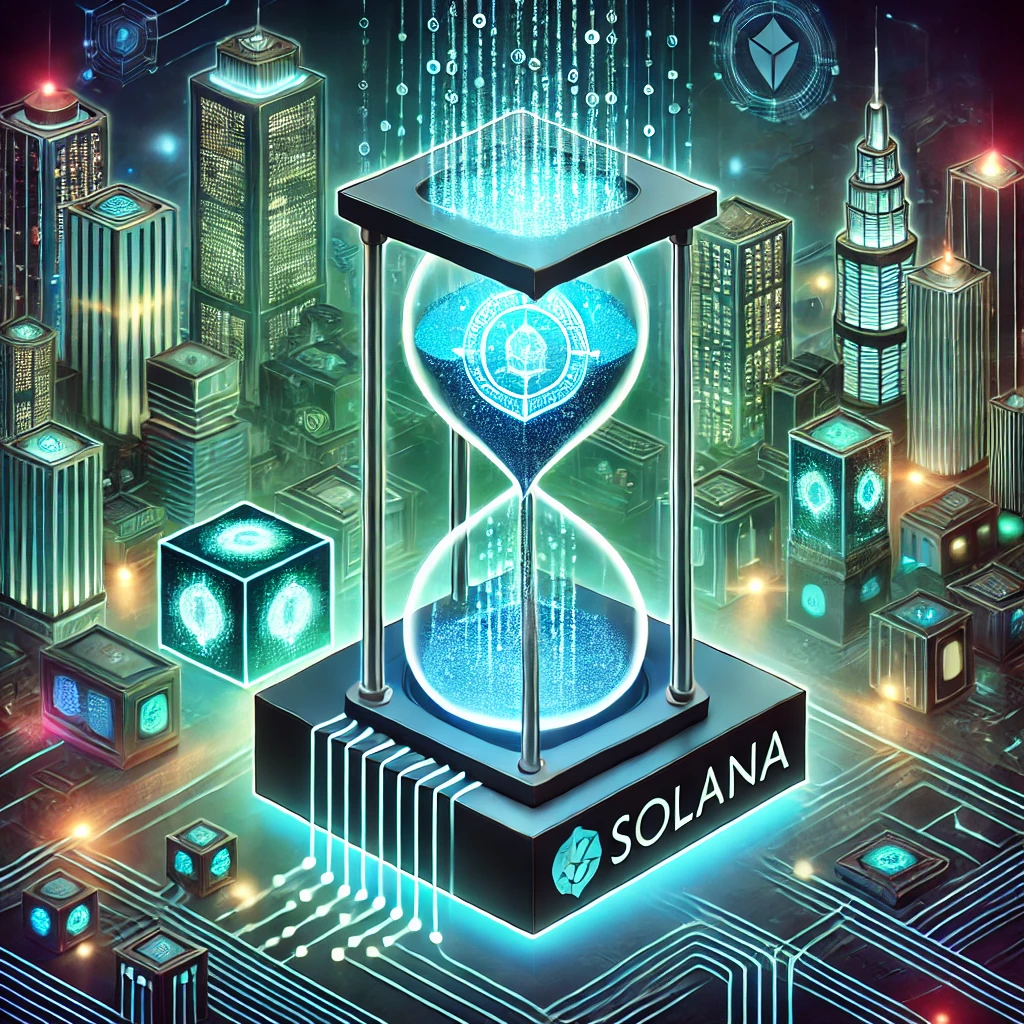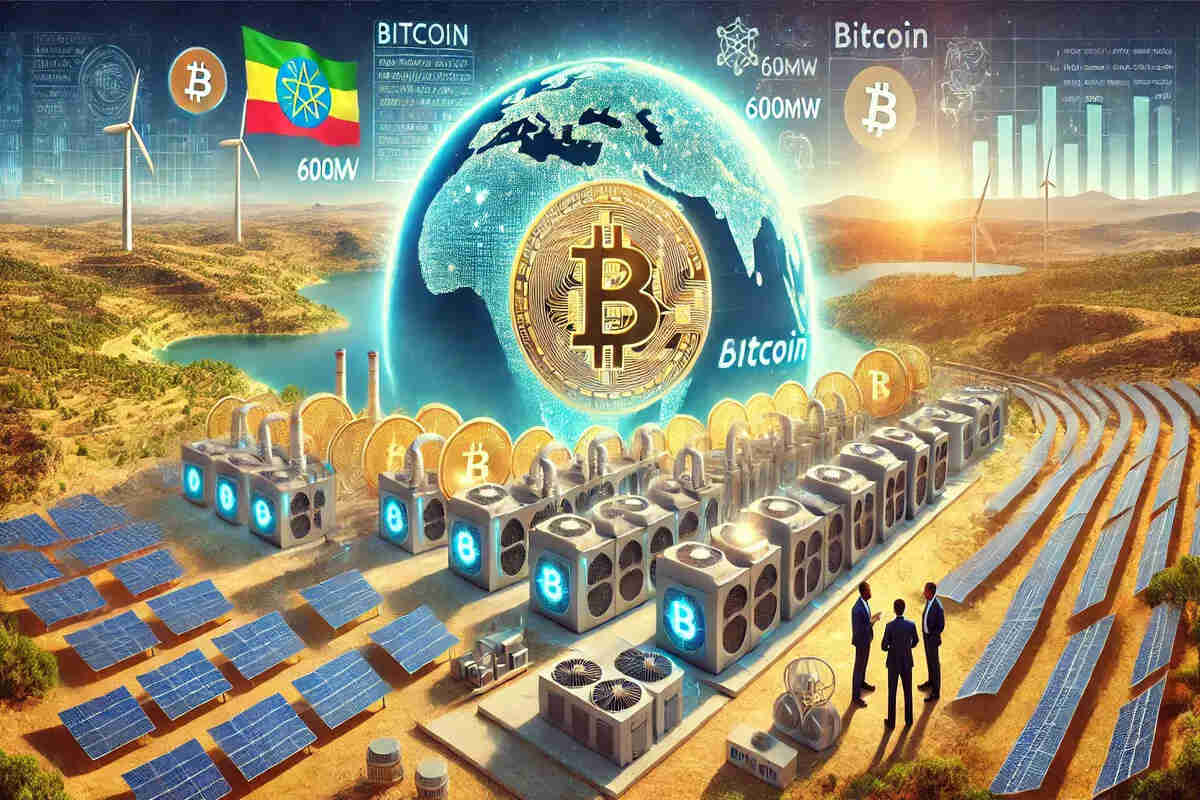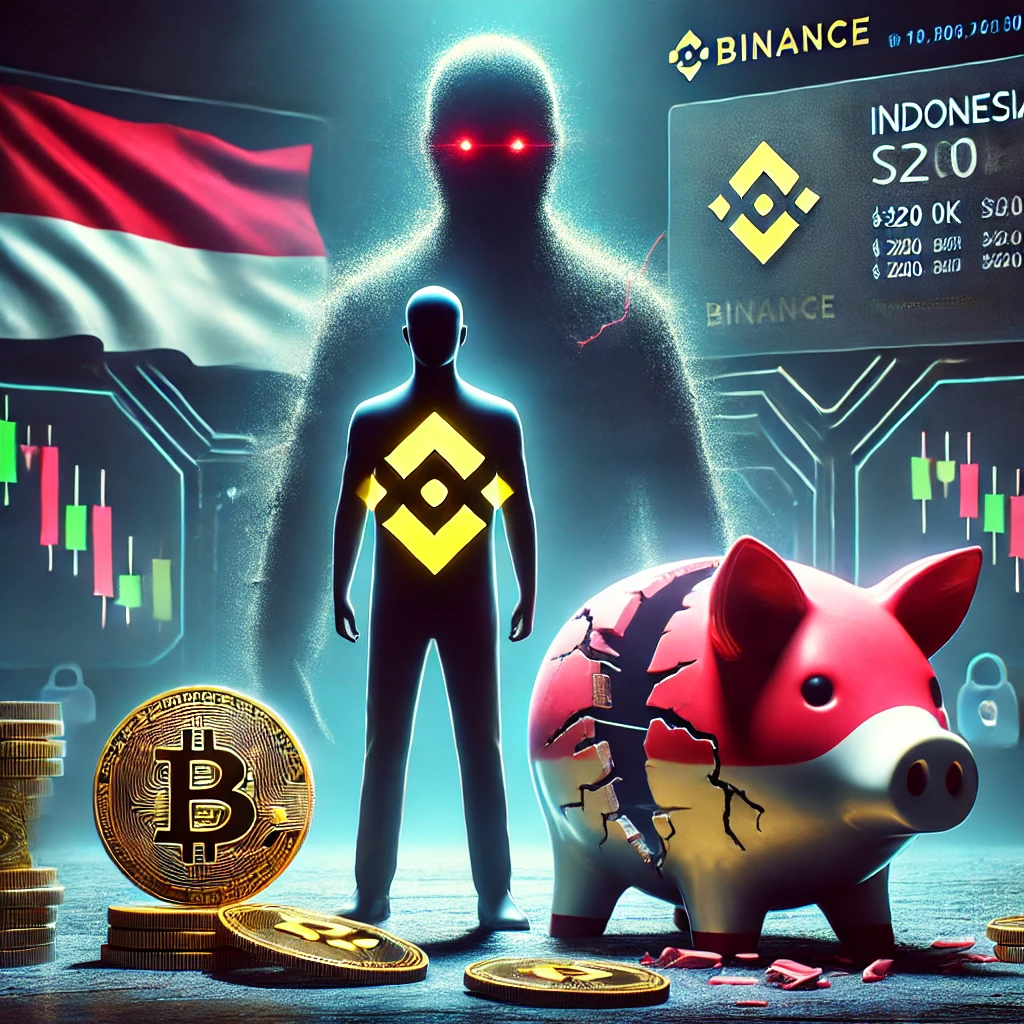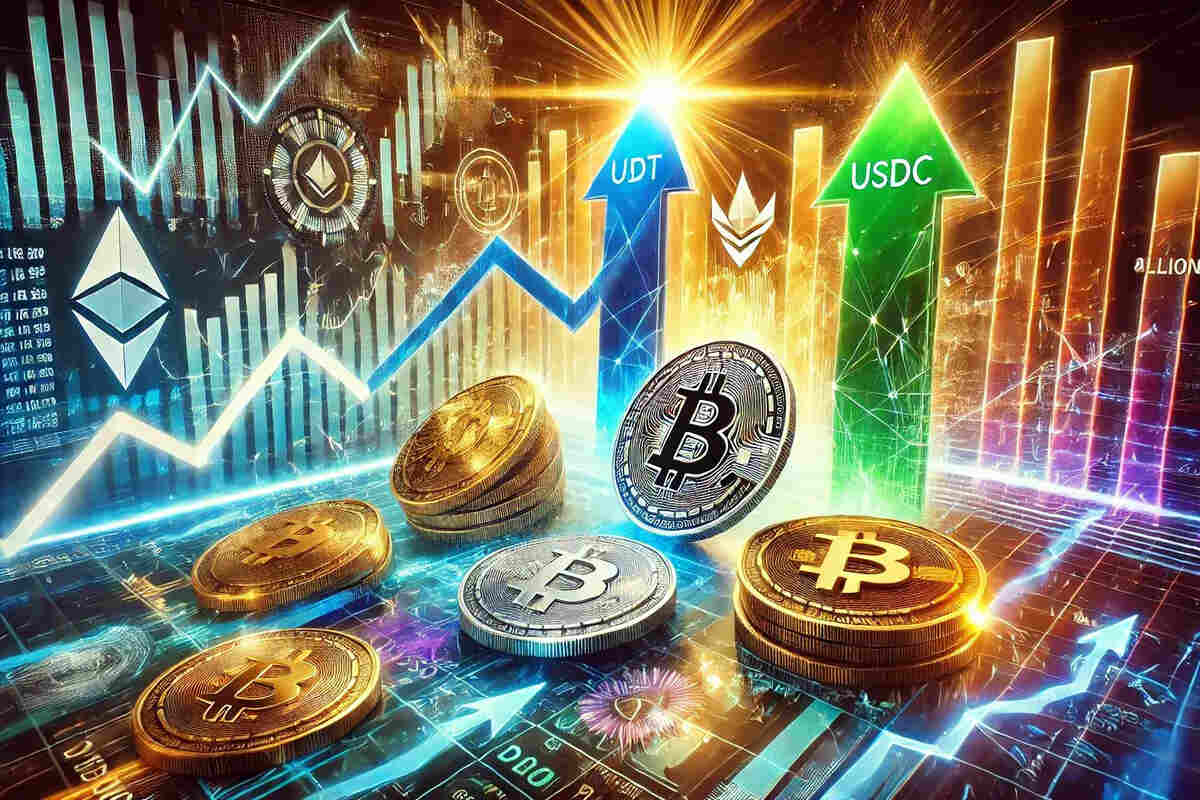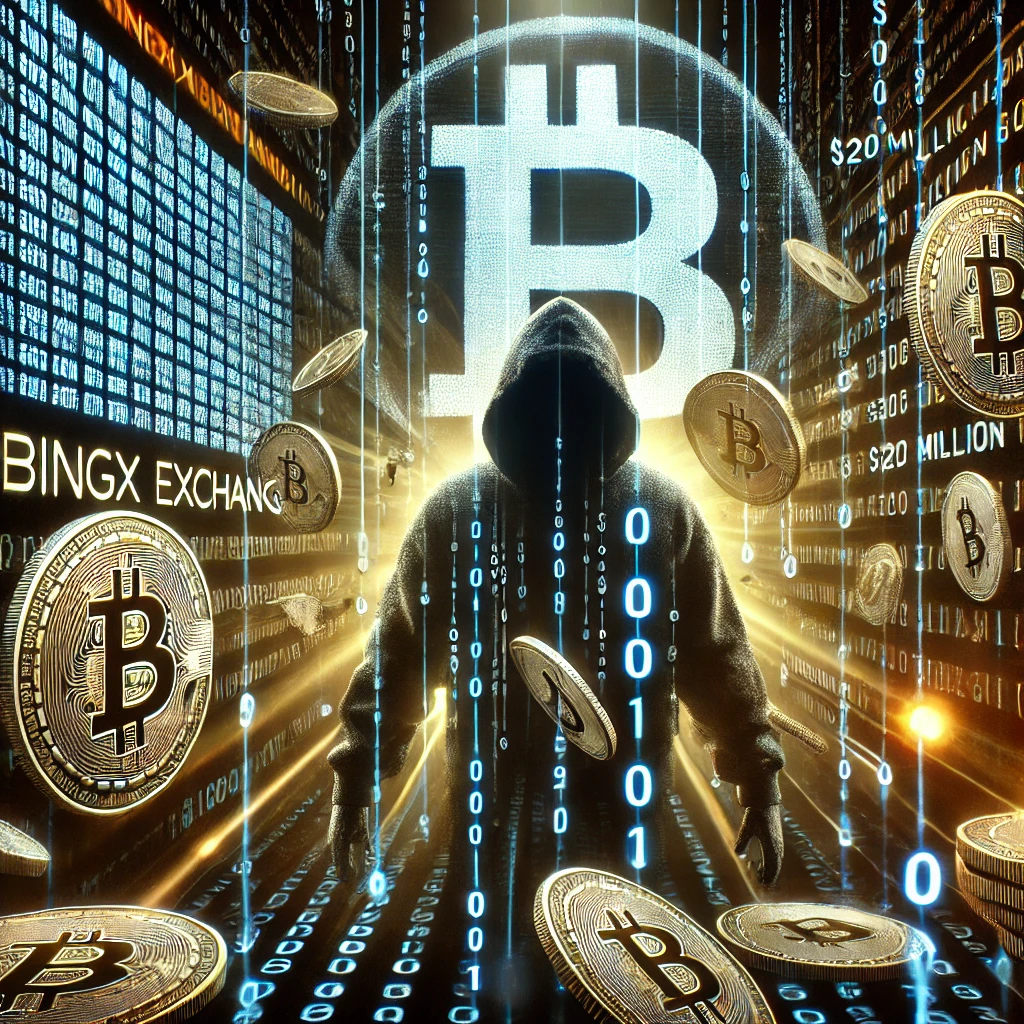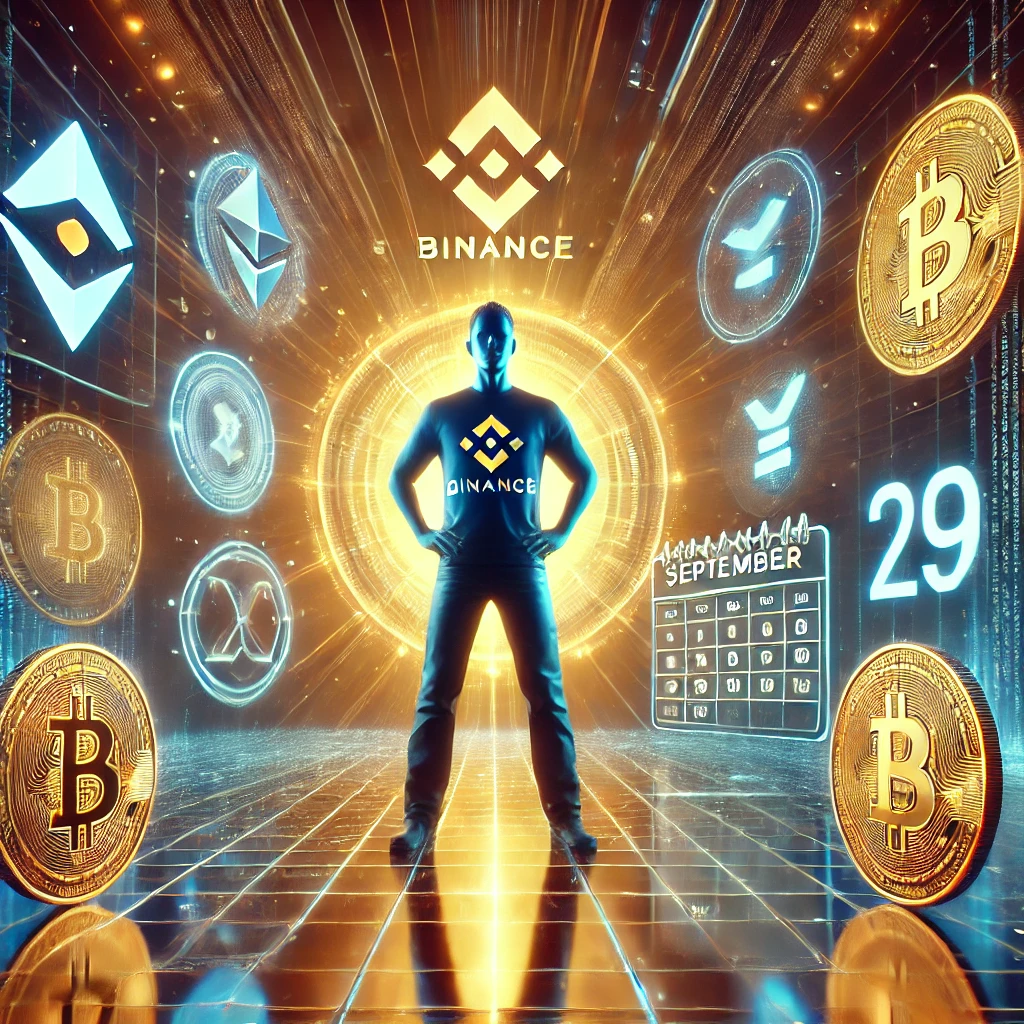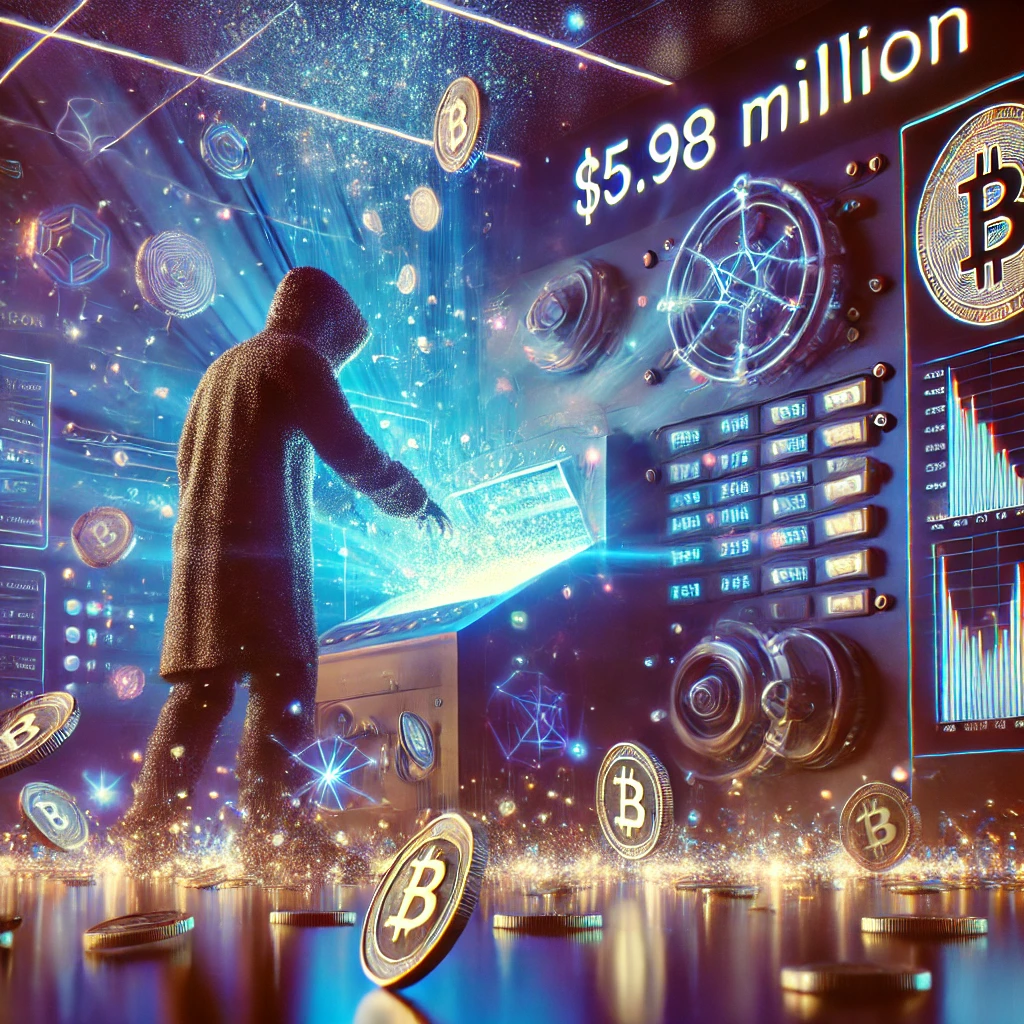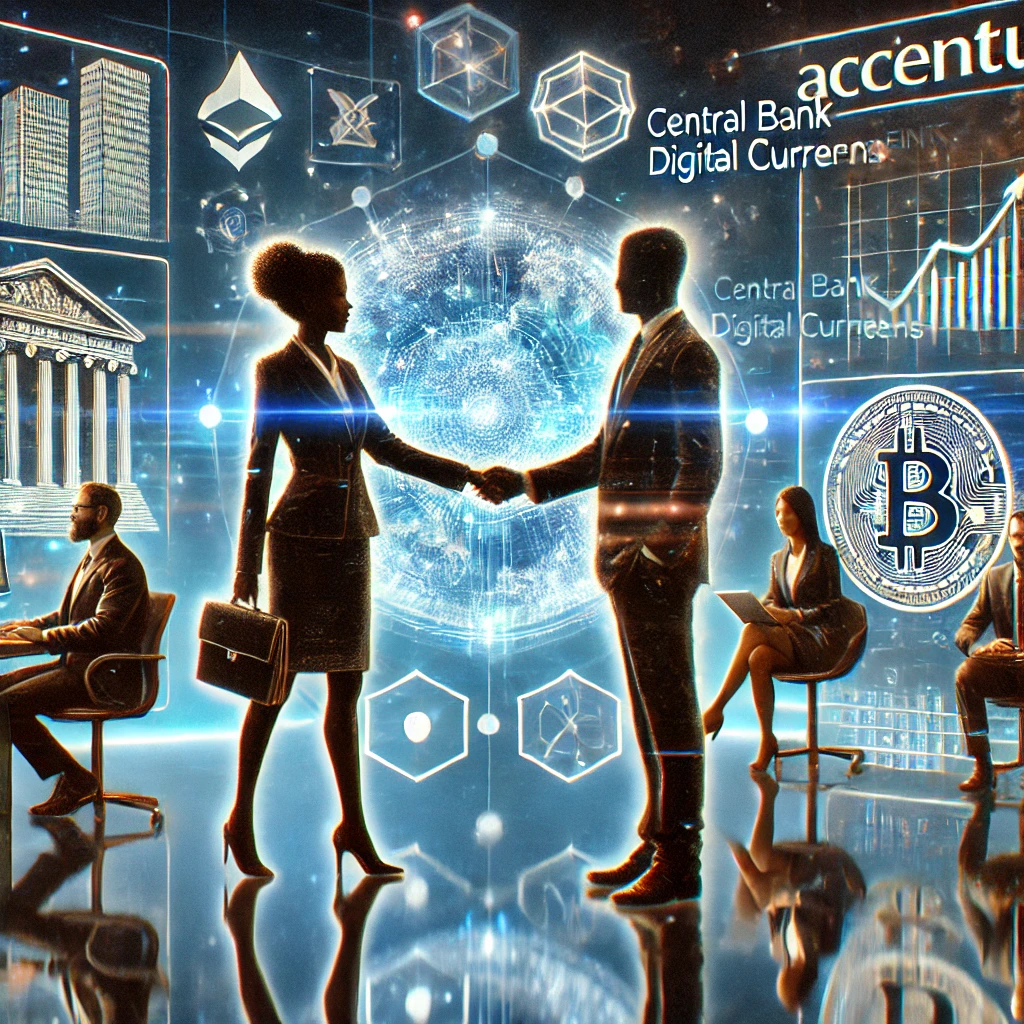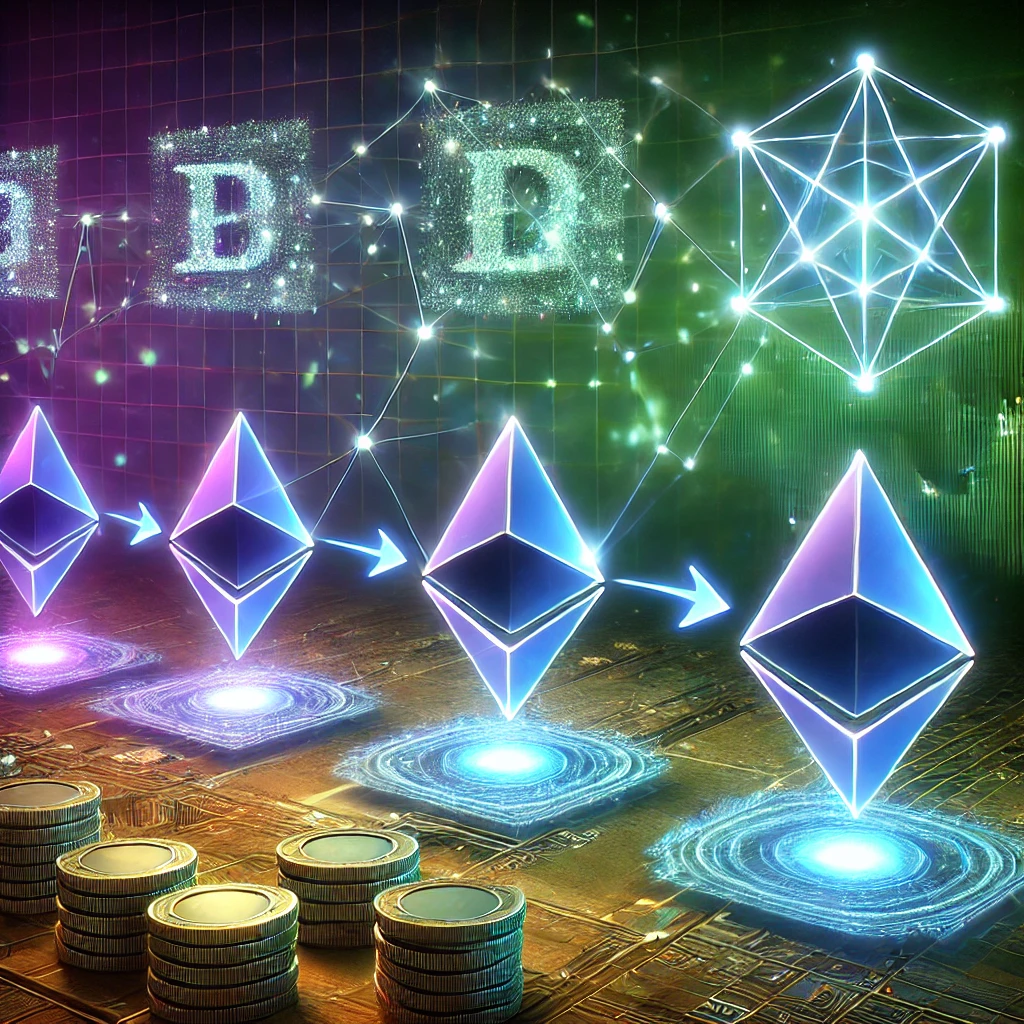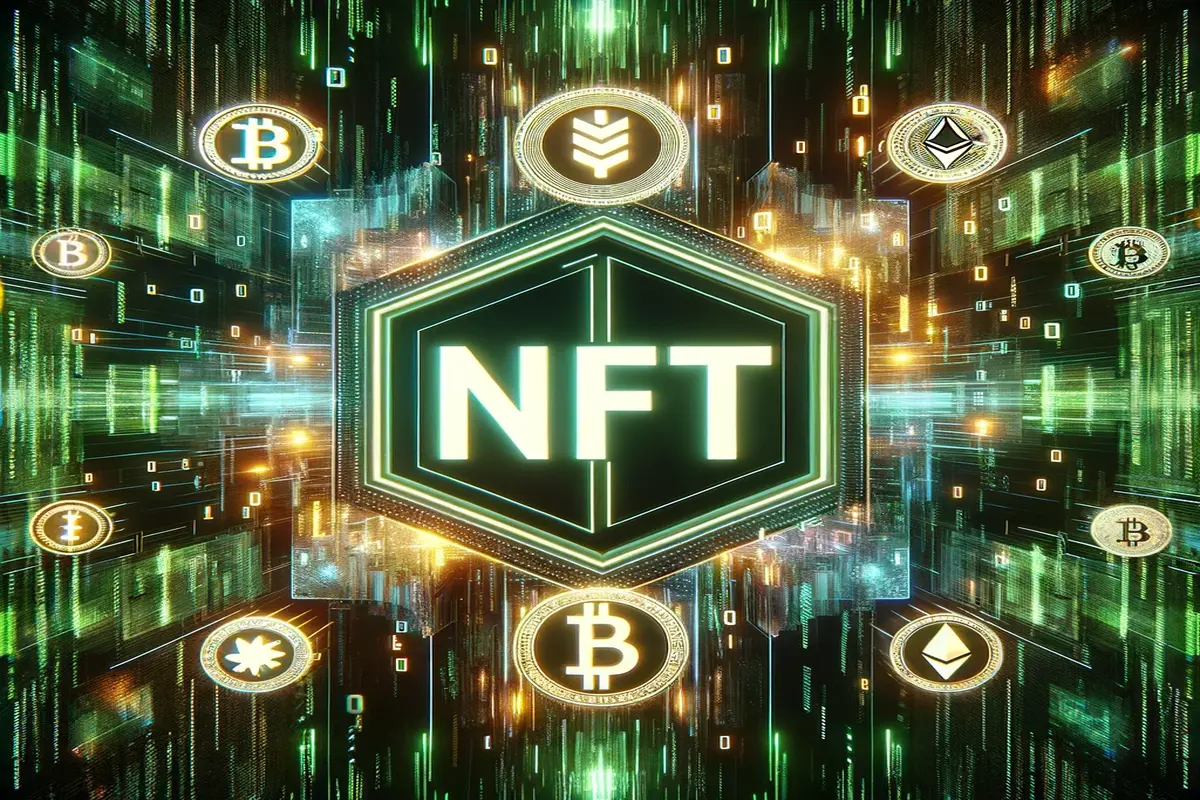
Estimated reading time: 7 minutes
NFT stands for Non-Fungible Token, indicating it is unique and not directly exchangeable on a one-to-one basis with anything else. In this scenario, a token acts as a digital certificate or proof of ownership, distinguishing NFTs as unique identifiers. Unlike cryptocurrencies such as Bitcoin or Ethereum, which are interchangeable, NFTs are designed to be irreplicable, utilizing blockchain technology to ensure security.
This technology provides NFTs with a level of security that guarantees the authenticity, provenance, and ownership of a digital asset, which is unchangeable. With cryptographic security, these tokens offer a tamper-proof and reliable record of ownership. NFTs serve as digital certificates for many assets, including art, music, videos, and more, ensuring the asset remains undivided and unique.
Table of contents
Difference Between NFTs and Other Digital Assets
NFTs and crypto share the same technological underpinnings but serve different purposes. Cryptocurrencies are fungible, meaning each unit is the same as every other. However, unique digital signatures distinguish NFTs, making them non-interchangeable with other tokens and highlighting their uniqueness in the digital asset space.
How Do NFTs Work?
NFTs introduce a novel class of digital assets secured by blockchain technology, representing unique and indivisible digital and physical assets. This ecosystem is underpinned by the principles of blockchain, emphasizing transparency, security, and permanence.
Blockchain Technology
Blockchain technology acts as a decentralized and distributed ledger across a network, preventing any single entity from controlling the system. This ensures transparency and resistance to tampering. Specific blockchain standards like ERC-721 and ERC-1155 create and manage NFTs, defining the properties and functions of these tokens. This standardization allows interoperability across different platforms and marketplaces within the blockchain environment.
Smart Contracts
Smart contracts play a pivotal role in the functionality of NFTs. Autonomous codes, known as smart contracts, govern NFT operations. They manage ownership transfer, royalties, and resale rights enforcement. Smart contracts ensure NFT integrity and utility, fostering confident and efficient engagement for creators and collectors.
Also read; What You Should Know About Cryptocurrency
Uses of NFTs
NFTs’ versatility and unique features have led to their rapid rise in popularity, transforming various industries. Here’s how:
Digital Art: The art sector has revolutionized with NFTs, enabling artists to tokenize their digital works. This process provides proof of ownership and authenticity, opening new monetization channels for creators.
Music: NFTs have become a tool for musicians to release special tracks, albums, and concert tickets, creating a direct connection with their audience and introducing a novel revenue model in the music industry.
Gaming: In the gaming sector, NFTs allow players to own in-game assets such as skins, weapons, and characters. This ownership supports a thriving secondary market for buying, selling, and trading digital items.
Collectibles: The collectibles market, including virtual trading cards to virtual pets, is flourishing with NFTs. These unique digital items offer collectors a platform to display and trade.
Virtual Real Estate: NFTs represent parcels of virtual land in online worlds and metaverse platforms, fostering a market for buying, selling, and developing virtual properties.
Fashion and Luxury: The fashion industry uses NFTs to authenticate luxury items, enabling buyers to verify the authenticity of high-end products through their Non-Fungible Token certificates.
Entertainment: For ticketing and exclusive events, NFTs ensure authenticity and provide a secure method for participation.
Charity and Fundraising: In charitable initiatives and fundraising, NFTs serve as tokens of appreciation for donors, enhancing transparency and trust.
As NFT technology evolves, its applications are expected to expand, further integrating into the digital world.
The Benefit of NFTs
NFTs, powered by blockchain, are redefining ownership and creativity in several fields. They ensure authenticity by certifying uniqueness and fight against counterfeiting in art and collectibles. By linking assets to a blockchain account, NFTs tackle the challenge of digital asset ownership and distinguish original from duplicate items.
Moreover, NFTs support copyright protection by allowing creators to include copyright details, thus enhancing security and intellectual property rights. Blockchain’s transparency offers an unchangeable record of ownership and history, reducing fraud and increasing trust within the NFT community.
Various sectors, including art, gaming, music, virtual real estate, and physical asset tokenization, utilize NFTs, creating new revenue streams and economic ecosystems.
The introduction of royalties incentivizes creators by providing them a share in resale profits, appreciating their work over time.
Challenges in The NFT Space
Environmental Concerns: The environmental impact of NFTs, especially those on networks like Ethereum, has been a point of contention due to the significant energy consumption involved in their minting and trading.
Copyright Issues: Tokenizing and selling digital assets in the NFT marketplace presents copyright challenges, sparking legal disputes and debates over intellectual property rights.
Market Speculation: The NFT market experiences extreme price volatility and speculative behavior, raising questions about the true value of digital assets.
Lack of Regulation: With minimal oversight, the NFT market’s security and investor protection have become significant concerns, highlighting the need for clear regulations.
Accessibility: The perception of NFTs as exclusive and costly poses barriers to wider accessibility, prompting discussions on democratizing NFT ownership.
Sustainability Considerations: Ongoing debate surrounds the NFT market, addressing environmental concerns, its long-term viability, and cultural impact.
Also read; What You Should Know About DeFi
NFT Security Features
Blockchain technology enhances NFT security through several key features:
Transparency ensures all transactions are visible, building trust among users. Immutability guarantees the details of NFTs remain unchanged once recorded, securing the ownership history. Proof of ownership is linked to blockchain addresses, making unauthorized transfers difficult. Smart contracts facilitate automated transfers of NFT ownership, improving security measures. Each NFT ensures authenticity by being unique, eliminating the possibility of counterfeit versions. NFTs embed copyright protection, safeguarding the rights of creators.
How to Buy and Sell NFTs
To purchase NFTs, follow these steps:
Select a Wallet: Choose a crypto wallet compatible with NFTs, like MetaMask or Trust Wallet. Install and set up your account.
Fund Your Wallet: Buy crypto, such as Ethereum (ETH), from a reputable exchange to add to your wallet.
Browse NFT Marketplaces: Visit platforms like OpenSea, Rarible, or NBA Top Shot to find NFTs for sale.
Connect Wallet: Link your wallet to the chosen marketplace by clicking on the wallet extension in your browser and confirming the connection.
Browse and Select: Look for NFTs you are interested in and view their details.
Place a Bid or Buy: You can either bid on an NFT or buy it outright, depending on the seller’s preference and the marketplace’s options.
Confirm Transaction: Check the purchase details, including price and gas fees, and confirm within your wallet.
Wait for Confirmation: The blockchain will need time to process and confirm your transaction, which may vary based on network activity.
Ownership: Upon confirmation, the NFT is yours. It can be viewed in your wallet or the marketplace’s collection.
Manage Your NFTs: You can hold, sell, or trade your NFTs within the marketplace or transfer them to another wallet.
For safety, ensure the legitimacy of the NFT and the marketplace before purchasing.
These steps are involved in selling NFTs.
Create or Mint NFT: Use an NFT marketplace or minting platform. Upload digital assets, add metadata, and specify uniqueness or collection affiliation.
Connect Wallet: Link your crypto wallet that contains the NFT you wish to sell to your marketplace account.
List Your NFT: Opt to list or sell your NFT on the marketplace, providing all necessary information such as title, description, and price.
Set a Price: Decide on a price based on market trends and the value you attribute to your work, aligning with your sales goals.
Choose Sale Type: Opt for a fixed-price sale or an auction, depending on your preference.
Gas Fees: Be mindful of the blockchain gas fees associated with NFT transactions.
Confirm and List: After reviewing your listing details, confirm to make your NFT available for purchase.
Promote Your NFT: Increase visibility by promoting your NFT on social media and other online platforms.
Monitor and Manage: Adjust the listing as needed and engage with potential buyers.
Transaction and Transfer: Once sold, the blockchain records the transaction, and you should follow the platform’s steps to transfer ownership.
Receive Payment: The sale proceeds are deposited in crypto to your wallet.
The NFT Marketplace
NFT marketplace is a Digital platform for buying, selling, and trading Non-Fungible Tokens (NFTs). NFTs are unique digital assets tied to art, collectibles, virtual real estate, and more. These platforms connect creators with collectors, facilitating transactions and offering a space to explore digital collectibles.
Notable NFT marketplaces include:
OpenSea has gained renown for its extensive range of digital collectibles, art, music, and more. Rarible is a decentralized platform emphasizing community governance. Axie Marketplace is for trading Axie Infinity’s blockchain-based game creatures. CryptoPunks features 10,000 unique pixel art characters.
NBA Top Shot Marketplace is offering official NBA collectible highlights. The foundation is a social platform for creators to mint and engage with NFTs. Nifty Gateway hosts primary sales and a secondary market for various NFTs.
These platforms cater to diverse interests within the NFT community, offering a wide array of digital assets for users to explore.
Discover more from The African Crypto
Subscribe to get the latest posts sent to your email.


